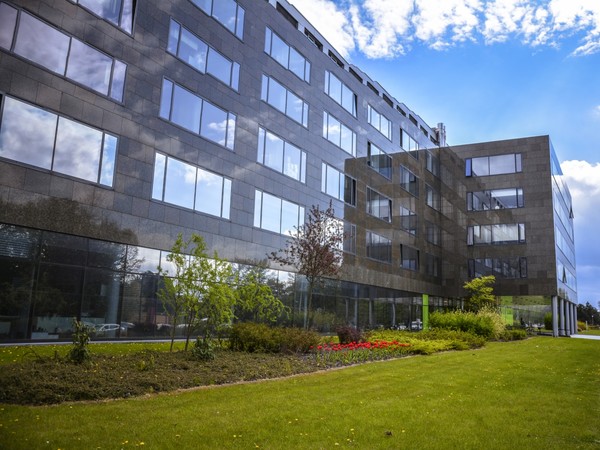Scientists from the UP Faculty of Science will participate in prestigious international projects funded by the European Horizon 2020 programme. The projects are aimed at the targeted treatment of osteosarcoma, quantum technologies beyond the Gaussian states, and quantum metrology. They will also seek to increase the resistance of potatoes to stress and to find possible solutions to the problems that European coal-dependent regions face in their transition to a carbon-neutral economy. A total of five projects received grants, spread over three years.
Four projects from the Czech Republic were successful in the Twinning call, two of them from the UP Faculty of Science. In the NONGAUSS project, scientists from the Department of Optics will focus on the almost unexplored area of nonlinear quantum technologies going beyond Gaussian states. They will cooperate with the Sorbonne in Paris and the Technical University of Denmark in Lyngby. “This project aims to break the long-term barrier in physics of many quantum particles, which is based on deterministic Gaussian states and operations, and to extend basic research and applications much further to the field of deterministic non-Gaussian quantum phenomena. The project will help us to at least partially explore and perhaps find a way to use this vast unknown area of nonlinear quantum physics,” said the project coordinator, Radim Filip from the Department of Optics. The acquired knowledge will be used in future quantum applications focussed on secure communication, simulations of nonlinear quantum phenomena, very accurate measurements, quantum computation, and even quantum thermodynamics.
The aim of the second project, called NANO4TARMED, is the targeted treatment of osteosarcoma, a malignant bone disease. “Our colleagues from Ireland are experts in drug development. At RCPTM, we provide nanoparticles that could be used to deliver the drug to the affected tissue. This is an issue that we have been dealing with for a long time. And our partners from Italy will contribute with their experience in testing this targeted treatment on cancer cells,” said Václav Ranc of the Regional Centre of Advanced Technologies and Materials (RCPTM), which received the prestigious grant. The project will also involve researchers from the Consiglio Nazionale delle Ricerche in Italy and the National University of Ireland, Maynooth.
The team of experts from the Department of Optics also succeeded in the FET Open call. Their project bears the acronym StormyTune – Spectral-temporal Metrology with Tailored Quantum Measurements. It is aimed at the field of quantum metrology and thus complements the previously granted ApresSF project. In the StormyTune project, Olomouc scientists together with their colleagues from Spain, Germany, France, Italy, Great Britain, and Poland will try to achieve quantum super-resolution, which should make quantum metrology even more accurate.
“Given the possibilities offered by quantum mechanics, it is truly remarkable that quantum metrology has never focused entirely on optimisation of measurements, but rather has been concerned with the construction of quantum states used to test the system under investigation. This project will use quantum estimation theory methods associated with quantum Fisher information; our goal is to achieve the quantum super-resolution mode in the temporal and frequency domain. We will demonstrate the theoretical considerations experimentally,” said Zdeněk Hradil of the Department of Optics.
Scientists from the Laboratory of Growth Regulators (LRR) will join the ADAPT project in the Sustainable Food Security call. The aim of the project is to identify the molecular mechanisms by means of which potatoes can adapt to combined environmental stress. It will result in the development of new breeding strategies to improve the productivity and yield stability of potatoes under stressful conditions. “The potato is one of the most important food crops in the world. One of the main limitations to ensuring necessary yields is its sensitivity to environmental stress, heat, and drought, often followed by floods. As far as agricultural crops are concerned, we practically lack knowledge of the signalling mechanisms that plants trigger after exposure to stressful conditions in an attempt to adapt to them. These adaptation mechanisms require metabolic reprogramming triggered by different signalling paths,” said Miroslav Strnad, Head of the LRR.
“In the case of potatoes, we will try to understand the dynamics of these complex signalling and stress response mechanisms,” added Strnad. The results of the research should be used in breeding new potato varieties that will be adapted to the specific environmental conditions.
The international project “Enabling positive tipping points towards clean-energy transitions in coal and carbon intensive regions” applied in the call “Social Sciences and Humanities Aspects of the Clean-Energy Transition” is focussed on the challenges of European coal-dependent regions in the transition to a carbon-neutral economy. It is rooted in the critical concept of socio-ecological “turning points” in the context of climate change, energy transitions, and economic transformations. “Based on empirical analyses of selected geographical, environmental, and socio-economic indicators, our objective is to understand the different developmental trajectories of various European regions and to identify and characterise the key negative and positive turning points within these developmental trajectories,” said Bohumil Frantál from the Department of Geography.
Horizon 2020 – the Framework Program for Research and Innovation – is the largest and most important programme for funding science, research, and innovation in Europe.
